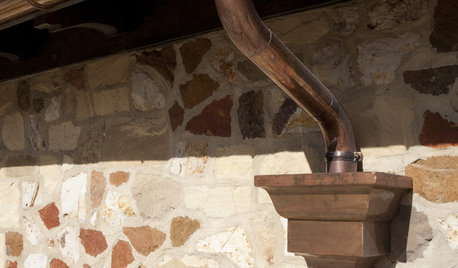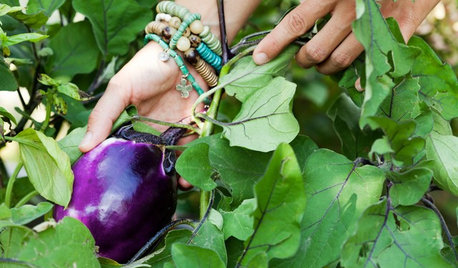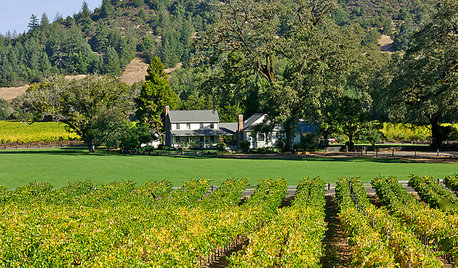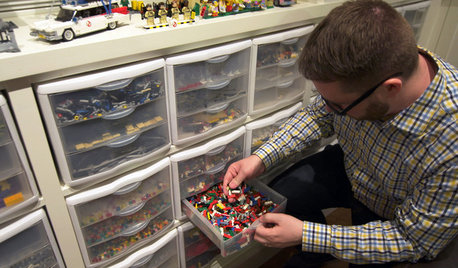Could You Live on Nothing but Potatoes? This Guy Did
jollygreenpimp
13 years ago
Related Stories

DECORATING GUIDESYou Said It: 'If You Do Nothing Else ... Clean Your Gutters,' and More
Design advice, observations and inspiration that struck a chord this week
Full Story
VALENTINE’S DAYTell Us: Why Did You Fall in Love With Your House?
What was it about your house that made your heart flutter? Share your photo, and it could make the Houzz homepage
Full Story
DECORATING GUIDES12 Decorating Scenarios When You Should Do Nothing at All
By embracing the positives of negative space, you can strategically highlight key furnishings, give the eye a rest and create focal points
Full Story
Let's Dish! Did You Watch the Flipping Out Premiere?
Contemporary Remodel Kicks off Design Show's New Season. What Did You Think?
Full Story
BUDGETING YOUR PROJECTHouzz Call: What Did Your Kitchen Renovation Teach You About Budgeting?
Cost is often the biggest shocker in a home renovation project. Share your wisdom to help your fellow Houzzers
Full Story
EDIBLE GARDENSHouzz Call: What Did You Grow This Summer?
Let’s celebrate the homegrown fruits and vegetables of the season. Post your pictures and tell us about your harvest
Full Story
UPHOLSTERYFabric Focus: There's Nothing Quite Like Linen
Classic, understated, durable and mildew-resistant, linen is a casual fabric fit for any home
Full Story
FUN HOUZZDid Elves Make a Home in a San Francisco Park?
Speculation has swirled around a Lilliputian doorway in Golden Gate Park. We give you the true story — and a design dilemma
Full Story
LIFEYou Said It: ‘They Did Not Have a Throwaway Mentality’ and More
Houzz articles about Fred MacMurray's farm, sci-fi style, hoodoos, and 31 true remodeling tales struck a chord this week
Full Story
BASEMENTSHouzz TV: This Guy’s Giant Lego Collection Proves Everything Is Awesome
You may have seen our story about this architect’s Lego-filled basement. Now watch the video to see just how he organizes all 250,000 pieces
Full StoryMore Discussions







nc_crn
laceyvail 6A, WV
Related Professionals
Harrison Landscape Architects & Landscape Designers · Maple Heights Landscape Architects & Landscape Designers · Gainesville Landscape Contractors · Beverly Hills Landscape Contractors · Brockton Landscape Contractors · Cordele Landscape Contractors · Kahului Landscape Contractors · Methuen Landscape Contractors · Rockland Landscape Contractors · Tehachapi Landscape Contractors · Westford Landscape Contractors · Bensenville Landscape Contractors · Ashburn Driveway Installation & Maintenance · Cincinnati Driveway Installation & Maintenance · Concord Driveway Installation & Maintenancefranktank232
nc_crn
taz6122
pnbrown
oregonwoodsmoke
pnbrown
efrain1122
Dan _Staley (5b Sunset 2B AHS 7)
pnbrown
markmahlum
albert_135 39.17°N 119.76°W 4695ft.
boodeeradley
taz6122
pnbrown
oregonwoodsmoke
pnbrown
Kevin Reilly
taz6122
branik
ltilton
pnbrown
eaglesgarden
pnbrown
oregonwoodsmoke
pnbrown
greenhummer
franktank232
branik
pnbrown
Dan _Staley (5b Sunset 2B AHS 7)
branik
markmahlum
eaglesgarden
bobb_grow
markmahlum
elffriend
curt_grow
pnbrown
markmahlum
pnbrown
markmahlum
pnbrown
taz6122
markmahlum
curt_grow
pnbrown